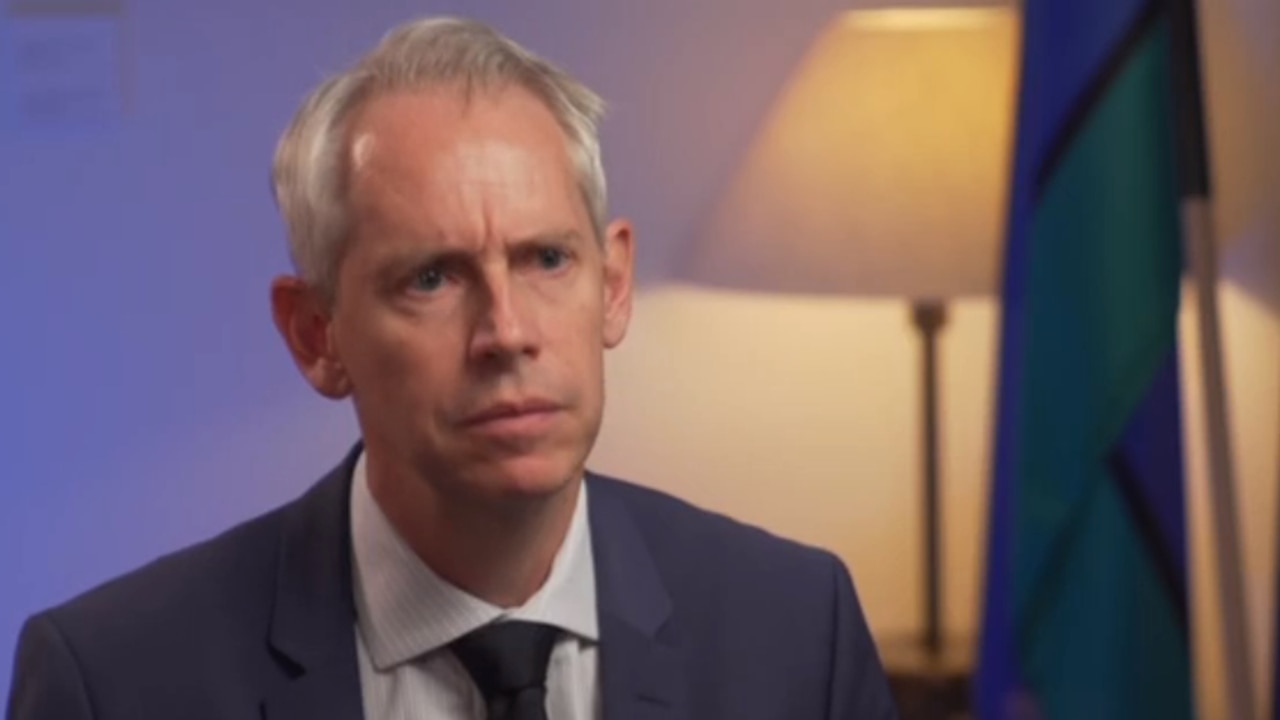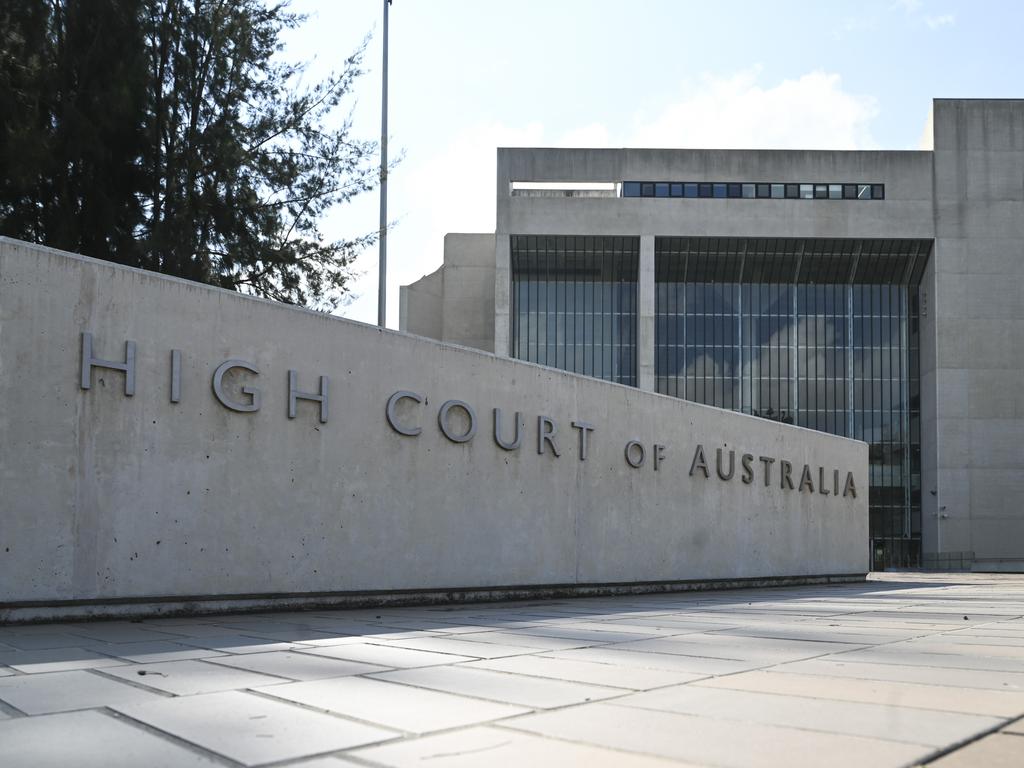Long white cloud hangs over Andrew Giles’ visa policy
Andrew Giles shelved a plan to tighten visa rules that would help ensure foreign-born criminals who terrorised family members were kicked out.

Immigration Minister Andrew Giles shelved a plan to tighten visa rules that would have helped to ensure foreign-born criminals who terrorised family members were kicked out of Australia, in damning revelations about the early formulation of his ill-fated Direction 99 policy.
The same Home Affairs department advice over the push to give foreign criminals more leniency if they had ties in Australia also revealed the government appeared more sensitive to how the original policy shift would be received in New Zealand than in Australia.
Anthony Albanese on Thursday was at the centre of the Direction 99 crisis, as he was forced to reject claims New Zealand’s then Labour leader Jacinda Ardern had been allowed to influence the policy for which she had lobbied.
The controversial Ministerial Direction was introduced last year to appease New Zealand’s anger over a string of deportations of long-term Australian residents with few ties to their country of citizenship.
“What we do is we determine our own policy according with our own interests and that is what we have done and, indeed, the request publicly from New Zealand was to remove section 501 (of the Migration Act) – we did not do that,” the Prime Minister told question time on Thursday.
But a 2022 Home Affairs department submission – sent directly to Mr Giles in the weeks after the criminal visa shift was announced – shows the main risks identified in formulating Direction 99 were concerns about how the policy would be scrutinised in New Zealand and the need to have a “whole of government” approach to answering queries from Wellington.
The submission also reveals Mr Giles’s failure to follow through on greater safeguards in family violence deportation cases.

The Australian has identified more than 20 examples of convicted domestic violence offenders being spared deportation in the wake of Direction 99’s stipulation to have greater tolerance for criminals with ties to Australia.
Among some of the most serious domestic violence offenders to win a visa reprieve from the AAT was Solomon Islands-born Jeffrey Chottu, who had been convicted over an incident in which he attempted to strangle his pregnant partner, punched her in the stomach repeatedly in an attempt to kill the unborn child, pushed her to the ground and repeatedly hit her head on the floor. She suffered four broken ribs from the incident.
The Australian can reveal the ministerial submission, dated December 22, 2022, and signed by the minister on January 20 last year notes that Mr Giles agreed to engage with the department on issuing “a further new Ministerial Direction to address family violence-related concerns”.
Mr Giles had met advocates of domestic violence victims in July 2022 to consult on his new ministerial direction, and correct what they saw as “unintended consequences” of previous visa policies.

In the Home Affairs submission, the document said Mr Giles wanted to “workshop” possible amendments to make migrant women and children feel more safe to report family violence as their aggressors often used the threat of deportation to harm them.
Direction 99 was introduced six weeks later with an updated definition of family violence to include intimate partners such as girlfriends and boyfriends.
But the Albanese government confirmed on Thursday that there were no further amendments to Direction 99 or any new directions covering foreign-born domestic violence offenders.
“The purpose of the proposed new definition (in MD99) would be to include, as a ‘member of the person’s family’, and thus as a potential victim of ‘family violence’ as defined in the Ministerial Direction, a person who has, or has had, an intimate personal relationship with the relevant person, for example a current or an ex-girlfriend,” the 2022 departmental submission said.
“This is separate to the changes to the Ministerial Direction that will be progressed later this year to address family violence-related concerns.”
When The Australian asked why the further amendments to family violence hadn’t been progressed as agreed to in the submission, a government spokesman said: “One of the changes introduced by Ministerial Direction 99 was to the definition of ‘member of the person’s family’ in family violence to make clear it included people both in a relationship, and in former relationships.
“This change clarified Direction 90, to put it beyond doubt that a former partner committing a violent act against someone would be a reason for a visa cancellation.”
Domestic violence perpetrators have been among the worst offenders allowed to stay in Australia as a result of Direction 99.
One of them, Canadian man Samuel Brock Saunders, attacked a family member verbally and physically after a gaming console controller was dropped. According to the AAT, which ultimately found he should remain in Australia, Saunders pushed the family member against a wall, threatened to stomp on their head and said he would “burn the house down with you and your brother in it”. In a separate incident, he punched his partner in the face and grabbed her by the throat.

In its 2022 submission, the Home Affairs Department also appeared concerned about the public relations issues surrounding the new immigration policy in New Zealand. “Given the undertakings made by Prime Minister Albanese at the Australia-New Zealand leaders’ meeting in July 2022, the New Zealand government and media will be especially vigilant regarding any changes to the character framework and policy settings, as New Zealand citizens are among the largest expatriate population and constitute around a third of all temporary entrants into Australia,” the submission said.
“To facilitate open dialogue with New Zealand, the department is preparing ‘whole of government’ talking points to address how the new primary consideration will require decision-makers to give stronger consideration to the strength, nature and duration of all non- citizens’ ties to, and residence in, Australia in character related visa decision making … The Department will work with your office to prepare communications (including talking points and web content updates) to support issuance of the new Ministerial Direction.”
New Zealand Foreign Minister Winston Peters said on Thursday he did not want to see Australia deport New Zealanders who had little connection to their country of origin, after the Albanese government committed to reform Direction 99.
“We accept that Australia has the right to determine what level of offending by non-citizens is unacceptable,” Mr Peters said. “But we do not want to see deportation of people with little or no connection to New Zealand, whose formative experiences were nearly all in Australia.”
Additional reporting: Rhiannon Down







To join the conversation, please log in. Don't have an account? Register
Join the conversation, you are commenting as Logout